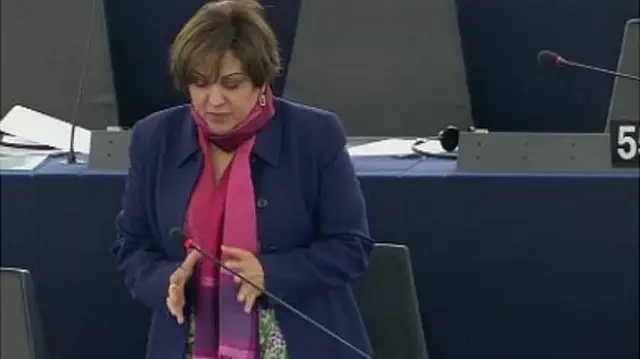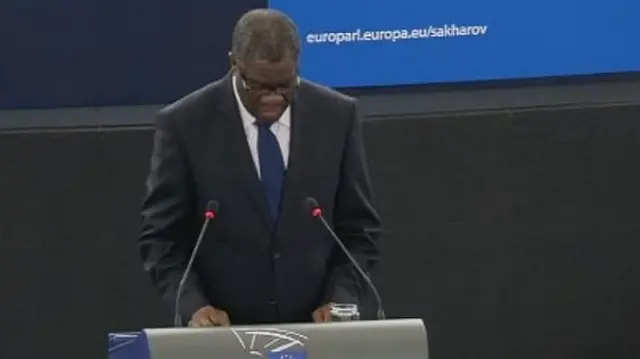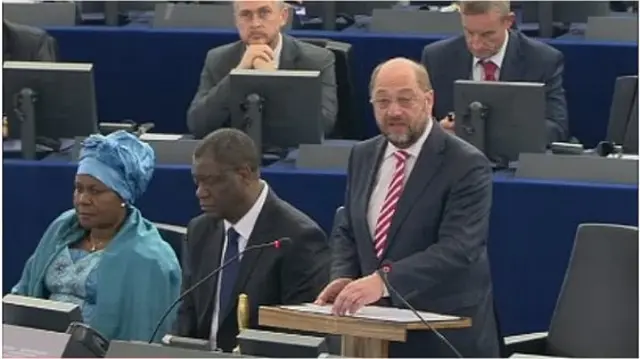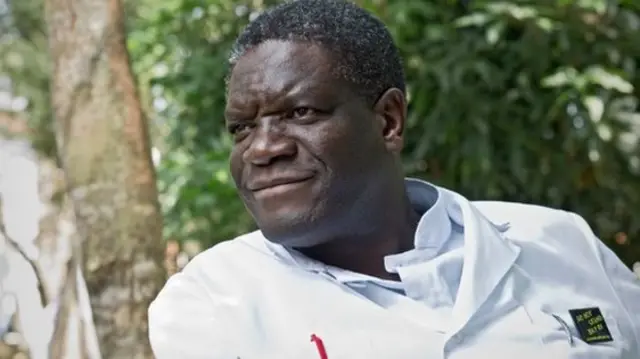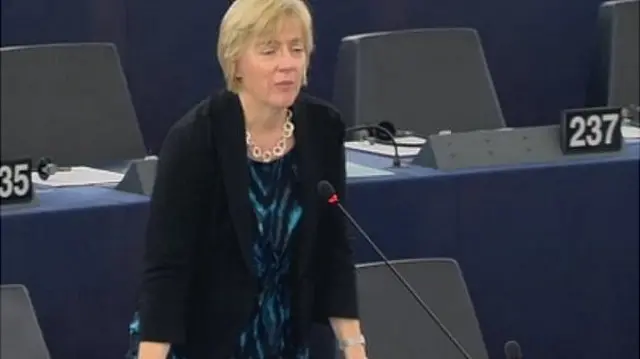Afternoon sessionpublished at 14:04 GMT 26 November 2014
Welcome back to BBC Democracy Live's coverage of today's proceedings from the European Parliament plenary session in Strasbourg.
MEPs are going to begin this afternoon's session with a debate on whether Palestine should be recognised as a state, following the proposals of the left-wing GUE and Socialist and Democrats groups in the Parliament.
Following changes voted on Monday, a vote on a resolution will now not take place tomorrow as originally planned, but has been postponed until next month's plenary session.
